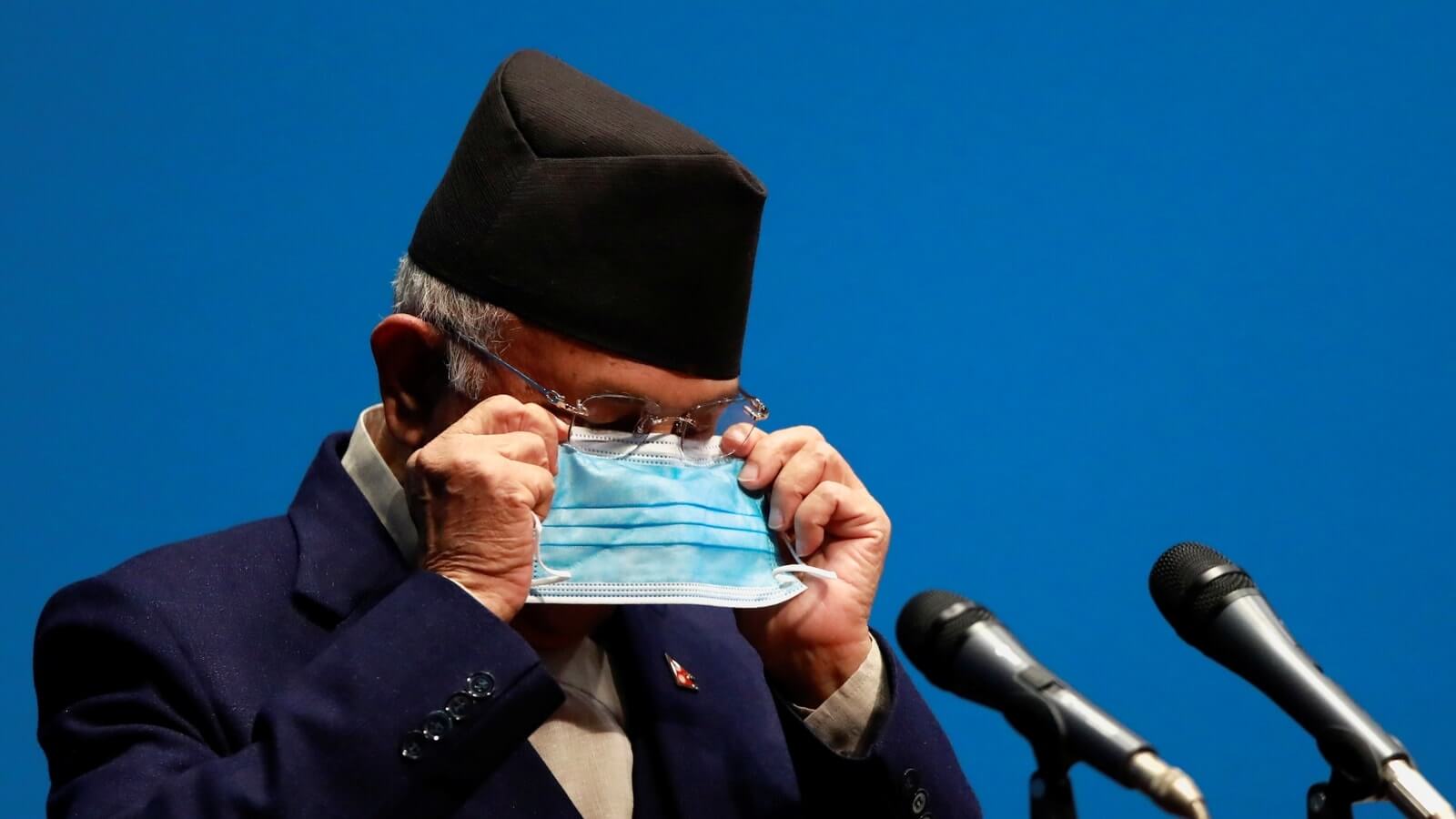Nepalese Prime Minister KP Sharma Oli lost a vote of confidence in the 275-member lower house of the Parliament on Monday, receiving only 93 votes of the required 136. 124 members voted against the embattled leader, with 15 remaining neutral. The vote was conducted during a special session of the Parliament called by President Bidya Devi Bhandari and was attended by 232 lawmakers.
Following the vote, the President of the Nepali Congress (NC), Sher Bahadur Deuba, the CPN-M Chairman, Pushpakamal Dahal “Prachanda”, and the Chairman of the Janata Samajwadi Party, Upendra Yadav, jointly released a statement calling on President Bhandari to initiate the process of forming a government. In response, Bhandari set a three-day deadline, giving the leaders until Thursday 9 PM to form a majority government and select their candidate to replace Oli.
According to Nepal’s constitution, Oli will now be immediately relieved of his position, and a new coalition government, which will be established by two or more parties representing the Lower House, will replace the current one. The NC, which is the main opposition party, and the Communist Party of Nepal-Maoist (CPN-M), who previously had a coalition with Oli’s CPN-Unified Marxist-Leninist are likely to step in.
Nepal has been on the brink of a political crisis for months now. The latest blow came after the KP Sharma Oli-led government in Nepal lost its majority in the House of Representatives on Wednesday, after the CPN-M officially withdrew its support. This move came after months of failed negotiations following President Bhandari’s decision in December 2020 to dissolve the Parliament and the announcement of fresh elections on April 30 and May 10, 2021. The dissolution of parliament reportedly came on Oli’s recommendation and was met with fierce opposition from rivals in the Nepal Communist Party, including Prachanda, with leaders calling the move “unconstitutional and undemocratic.” In February, however, the Nepalese Supreme Court annulled the government’s move and reinstated the dissolved Parliament, ordering the leadership to summon the House within 13 days.
This also comes amid a months-long intra-party power tussle between Oli and Prachanda, the country’s former Prime Minister, and his rival in the NCP coalition. Oli was elected to power in 2017 for a five-year term. During the NCP’s formation in 2018, the two leaders had negotiated a power-sharing agreement, wherein both Oli and Prachanda would hold the post for Prime Minister for two-and-a-half years each. However, in 2019, the two agreed that Oli would hold the PM post for the entire term and that the position for the Executive Chairman would be given to Prachanda. According to Prachanda, since the “spirit” of the 2019 agreement was not being respected by the PM, he should abide by the 2018 arrangement. However, Oli repeatedly reiterated his unwillingness to step down from his position as the country’s Prime Minister. This created two factions in the NCP, with one group supporting the current PM Oli, and the second group supporting former prime minister Prachanda, which has finally resulted in this week’s events.
Nepal PM KP Sharma Oli Loses Confidence Vote Following Loss of Majority
PM KP Sharma Oli lost a vote of confidence in the Lower House of the Parliament after securing merely 93 votes from the 275 members, 43 less than required.
May 11, 2021

SOURCE: REUTERS
